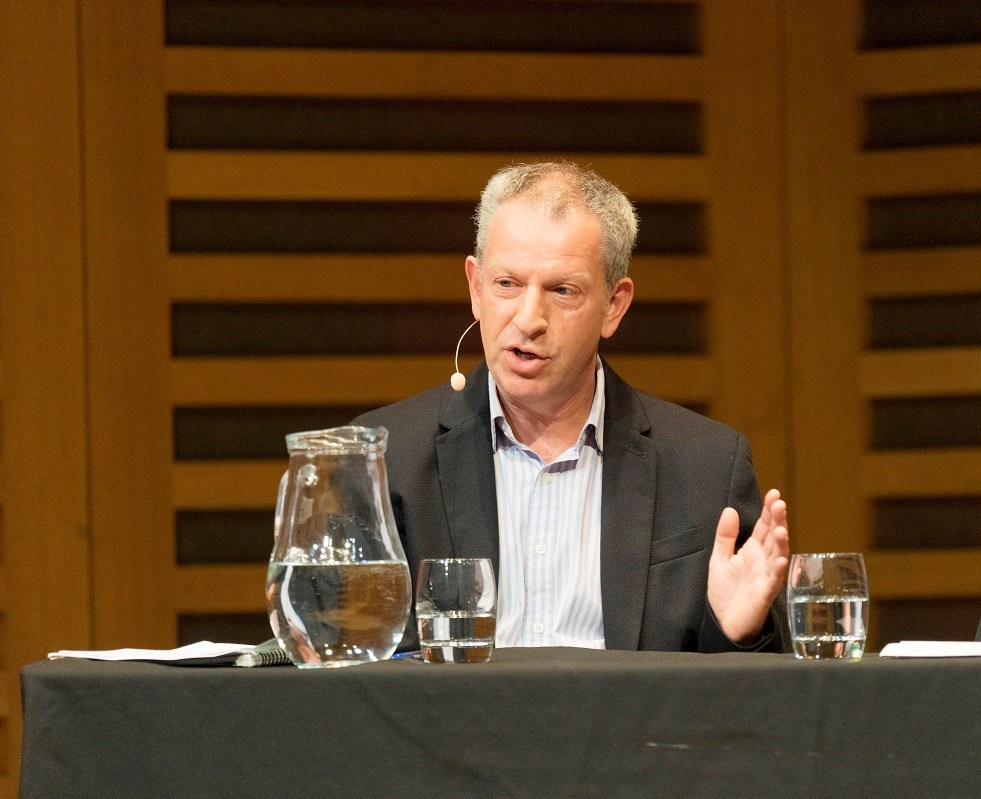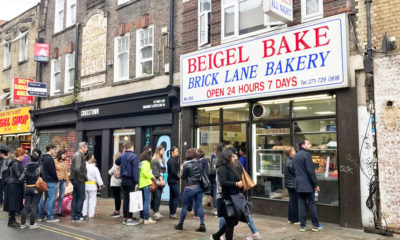
World News

The great British botch-up of justice against Nazis
Only one Nazi war criminal was ever tried and convicted in Britain. In fact, most Nazi war criminals and collaborators who hid in the United Kingdom (UK) were left alone by authorities and allowed to enjoy peace and safety for the rest of their lives.
That’s according to Phillip Rubenstein, who served as the director of the All-Party Parliamentary War Crimes Group in the UK in the 1980s.
This organisation campaigned successfully to change the law to enable the prosecution of Nazi war criminals living in the UK. Rubenstein shared his experiences in a lecture delivered to the Lockdown University run by Wendy Fisher. The lecture was screened in South Africa through the Rabbi Cyril Harris Community Centre.
Rubenstein reminded the audience that, after the war, the experience of the Holocaust was mostly shrouded in silence for decades afterwards, and little action was taken against perpetrators.
For example, between 1945 and 1985, there were seven requests for extradition of Nazi war criminals living in the UK, and none of them were honoured – the British government using technicalities as an excuse.
In the 1970s, interest in the Shoah began to increase, and “one of the manifestations was that Western governments started to wake up to the fact that they were harbouring Nazi war criminals usually unbeknown to them”.
In October 1986, the Simon Wiesenthal Center in Los Angeles compiled a list of 17 individuals which it claimed were Nazi war criminals living in the UK, and sent it to then British Prime Minister Margaret Thatcher.
The government didn’t respond in the first few weeks, but the centre also contacted some members of parliament. A group of MPs from across party lines decided to form a group to “push, prod, ask questions, and find out what the British government proposed to do about the list”.
In the interim, the media got hold of the list through a separate leak, and began its own investigation, exposing the fact that there were Nazi criminals in the UK. Moreover, the Soviets also handed over another 34 names in this regard to the British government.
By now, media attention ensured there was a public outcry, but for weeks, the government still didn’t respond. “The issue had turned into a ‘hot potato’. No one wanted to deal with it, and it was being passed from pillar to post,” notes Rubenstein.
Eventually, it was given to then-Home Secretary Douglas Hurd, with whom the group immediately asked for a meeting.
“So, we sat down in front of him, and he said it was a case of good news/bad news. ‘We have looked at the list, and we have found that of the 17 individuals who are on here, six of them, we can confirm, are still alive and well and living in the UK,’ Hurd said. ‘The bad news is there is absolutely nothing that can be done because we don’t have any law which says that if you commit a crime – even murder, mass murder, or genocide – outside of this country before you were a UK subject, you can be prosecuted for it.’ That was how the meeting ended.”
The government then set up an independent inquiry, with Rubenstein quipping that the motivation seemed to be that “the inquiry takes so long to sit and pontificate and report that by the time it’s reported, everyone would have moved on”.
In the interim, Rubenstein’s group launched a research project led by historian David Cesarani to determine how Nazi criminals got to the UK in the first place.
The majority of the Nazi criminals found in the UK were Baltic nationals from Estonia, Latvia, or Lithuania, or from Poland or the Ukraine. Indeed, researchers discovered that they had been some of the estimated 30 000 local officials who had collaborated with the Nazis einsatzgruppen, the troops given the task of murdering mostly Jews, as well as Roma and dissidents once an army invasion was successful.
In 1944, when the tide began to turn in the war, many collaborators pretended to have been innocent civilians or part of the Polish Free Forces to be eligible as “displaced people”.
After the war, a “displaced person” would be able to get food and shelter on one condition: that they were not a Nazi war criminal or collaborator. Every army involved in bringing displaced people over was required to ensure this criterion was met. “Most of the armies applied poor perfunctory screening; probably the worst offenders were the British army which hardly screened anyone.”
The only time on record when anyone was refused by the British was when a group of seven Latvians, still in their Waffen-SS uniforms, applied.
In fact, recalled, Rubenstein, researchers came across one incident when a relief worker came upon 20 Baltic nationals in a displaced-persons camp who all had the same scar under their left armpit. “She discovered the reason why they all had that scar there was that they all had an SS tattoo there and they’d all had their tattoos removed. When she mentioned this to her superior officer, she was told to get on with it, shut up, and do her job.”
“Why were the British and others so uncaring about this issue?” mused Rubenstein.
There was some element of influence from the Cold War whereby anyone who was anti-Bolshevist was seen as welcome, but Britain’s attitude stemmed mostly from a much more practical place.
“As a result of the depletion of men during the war, there was a critical labour shortage.” The government was therefore carefully selecting displaced people based on who best could fill in this gap.
Jumping ahead to February 1989, the government’s war crimes inquiry then finally released its report. In its conclusions, it declared that following investigations, “to take no action would be to taint the United Kingdom with the slur of being a haven for Nazi war criminals”.
The report called for the prosecution of a number of the cases of alleged Nazi war criminals living in the UK, and for criminal law to be changed in order to do so.
However, the parliamentary process met some open antisemitism. It was only through the intervention of Thatcher that the Bill allowing such prosecution was eventually passed in 1991.
After this, a metropolitan police force specialist unit was set up. Over the next eight years, it investigated almost 400 suspects. In all that time, there was only one trial: that of Belorussian born, retired British Rail ticket collector Anthony Sawoniuk, who in 1999, was found guilty of the mass murder of Jews. Three months after his trial, the police unit closed down.
Rubenstein reflected on a comment that Labour MP Llin Golding made after being asked on a previous occasion if getting the Bill passed wasn’t a waste of time.
He quoted her response: “This Bill may not lead to a single prosecution of a single Nazi war criminal living here. But at least it might give them bitter fear that one day soon, someone will knock on their door and make them answer for the suffering they inflicted.”










